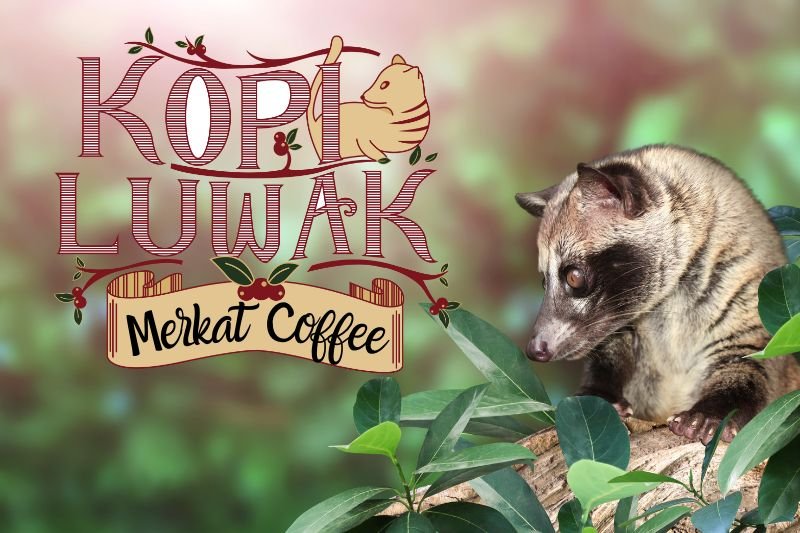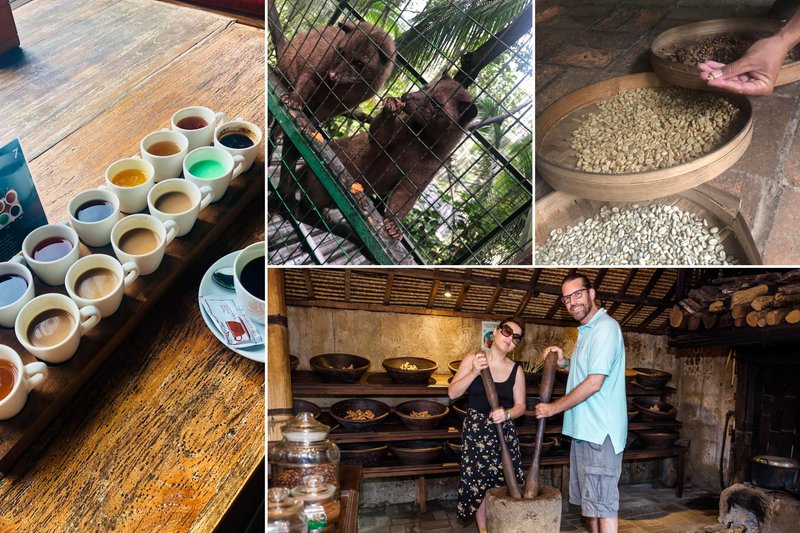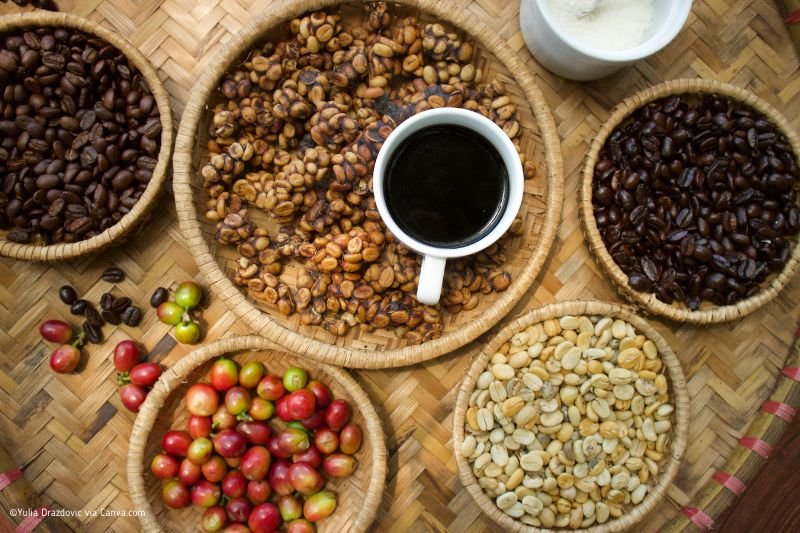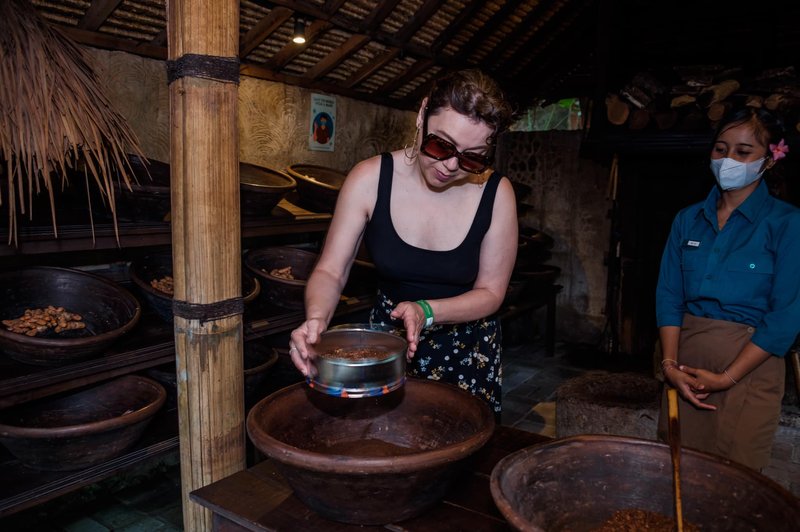
If you are a coffee enthusiast, you have probably heard of kopi luwak, the world's most expensive coffee. But what makes kopi luwak so special? And is it worth trying?
In order to bring the answers to this question to you, we have traveled to an agrotourism site in Bali where this coffee is produced.
This unique coffee is made from beans that have been digested and excreted by the Asian palm civet, a small, cat-like mammal found in Southeast Asia.
Some of you might find the idea fascinating, while others are surely already pulling faces. I can understand that at first, the idea of drinking coffee that has 'passed through the digestive system of an animal' may not sound very appealing - but you can take my word for it: it is not gross, it does not taste weird.
To learn more about kopi luwak, we traveled to Bali, Indonesia, where we visited a coffee plantation that specialises in producing this unusual coffee (you can read more about the place an dour experience in this blog article) and were able to immerse ourselves in the experience.

At the plantation, we were given a tour of the coffee-making process, starting with the civet's role in the production.
The Asian palm civet is a nocturnal animal that feeds on coffee cherries, digesting the outer layer of the fruit while leaving the beans intact. That leads to 'kopi luwak' also being known as civet or merkat coffee (or, less flattering, 'monkey poop coffee').
What sets this coffee apart from the standard beverage we all know, is the process of fermentation of the coffee beans - in the digestive tract of the Asian palm civet. This gives the coffee its characteristic flavour profile, but at the same time raises the question:
Where did this coffee tradition come from, and how has it evolved over time?
The history of kopi luwak dates back several centuries to the Dutch colonial era in Indonesia, when the colonial rulers introduced coffee plantations to the country. At the time, coffee was a valuable commodity and a significant source of income for the Dutch East India Company involved in its trade.
Therefore, all coffee beans were meant for export and no locals, let alone the plantation workers, were allowed to pick any for their own consumption.
However, some workers discovered that the Asian palm civet, that lived in the surrounding jungles, would eat coffee berries and then excrete the undigested seeds in their feces which were then collected by the local people and roasted them to make a brew that they found to be rich and flavourful.
Over time, the local farmers' practice of collecting and processing the coffee seeds from civet droppings became more widespread and evolved into a cottage industry. The 'kopi luwak's unique and complex flavour soon became a favourite among locals and eventually caught the attention of Dutch colonial officials, who recognised its potential value as a high-end specialty coffee. Today, the civet coffee is a sought-after luxury item among coffee connoisseurs worldwide.

Unethical practices
In the early 2000s, kopi luwak gained widespread popularity, and the demand for the coffee skyrocketed. This led to a surge in production, and some farmers began capturing civets and force-feeding them coffee berries to meet the high demand. This unethical practice has led to criticism and controversy within the coffee industry, and many companies have since taken steps to ensure that their kopi luwak is ethically sourced.
The plantation we visited held two civets in captivity for 'educational purposes' while, according to their own statement, all others roamed free. Since we visited during daytime, we did not see any of the nocturnal animals and hope that was a good sign.

What does Kopi Luwak taste of?
Among coffee connoisseurs, kopi luwak is known for its unique and complex flavour profile, which is described as smooth, rich, and slightly earthy with a hint of chocolate and caramel. Some might also detect a slightly fruity or floral aroma, while the coffee has low acidity.
The unique taste of kopi luwak is thought to come from the fermentation during the passing of the civet's digestive tract. In layman terms, when the civet eats the coffee berries, the enzymes in its digestive system break down the proteins and sugars in the coffee bean, which alters the flavour and aroma, and results in the kopi luwak's distinct taste that sets it apart from other coffees.
While all of the above is certainly true to a degree, we must not forget that the taste of kopi luwak can vary widely depending on factors such as the region where the coffee was grown, the processing method, and the roasting technique used.

Where to buy ethically sourced Kopi Luwak?
These days, you can easily buy Kopi Luwak online even in big outlets such as Amazon. You can find an overview of all their 'sustainably sourced Kopi Luwak offers` here *
*affiliate link
You might also like

I'm really curious - have you ever tasted Kopi Luwak? If yes, did you taste a difference to 'standard' coffee? If no, would you if given the chance? Please let me know in the comments below.
Xoxo Rena


